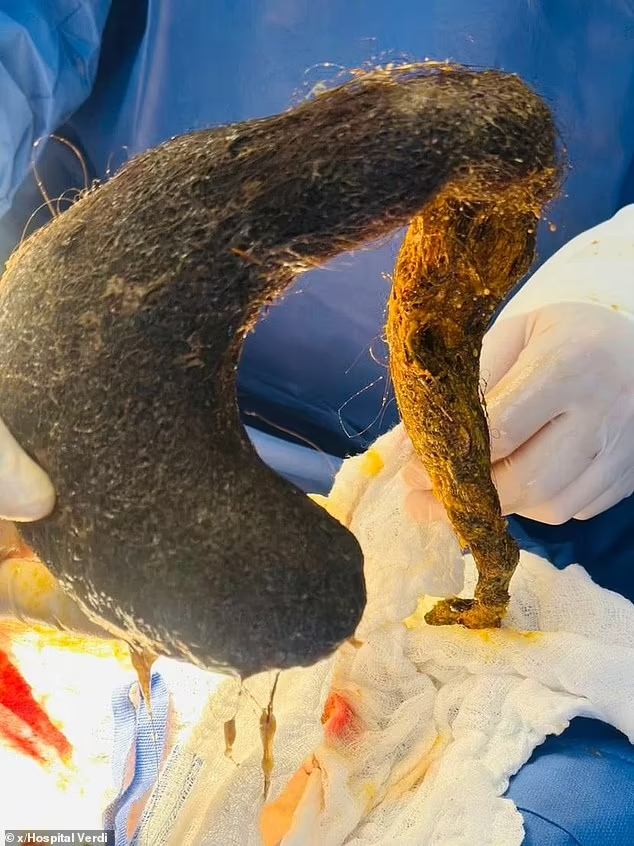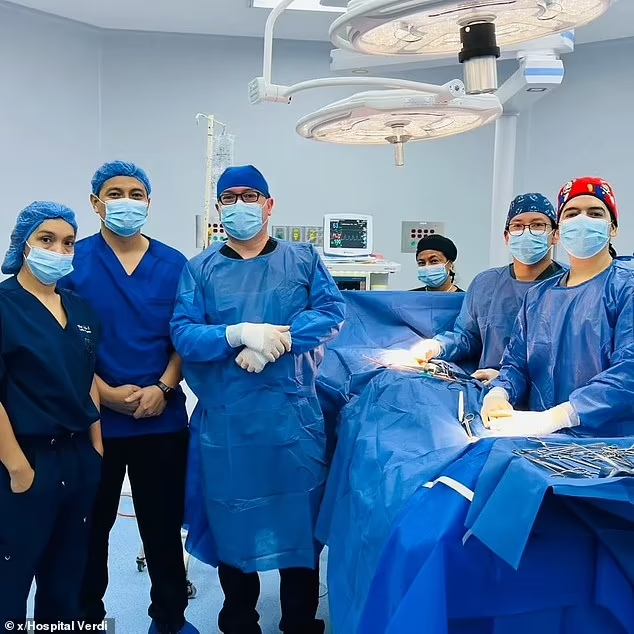In a remarkable medical procedure, a giant mass of hair was successfully removed from a woman’s stomach at Verdi Ceballos Balda General Hospital in Manabi, Ecuador. The surgery, led by Dr. Pedro Lovato and his team, took just 45 minutes to extricate the 24-year-old patient from a dire and unusual predicament.

Dr. Pedro Lovato, one of the two surgeons at the helm of the operation, disclosed that the hairball measured nearly 16 inches in length and weighed a staggering two pounds. “It was a mass that occupied the entire gastric cavity and could even be identified by touch from the outside,” Lovato revealed in a statement shared on the hospital’s social media platform.
The patient’s condition, attributed to the medical term trichophagia, involved compulsively eating her own hair over a span of two years. This rare psychomedical disorder had led to the gradual accumulation of hair in her stomach, causing severe gastrointestinal distress.
Experiencing intense pain, vomiting, and significant difficulties in consuming both solid and liquid foods, the woman’s condition progressively worsened. “She is a patient with a psychomedical disorder, so the definitive diagnosis was achieved through a video endoscopy performed by the gastroenterology service,” explained Lovato.
The extensive hair mass not only filled the entire stomach but also reached the duodenum, the first segment of the small intestine. This severe obstruction caused the woman to lose a substantial amount of weight as she could no longer ingest food adequately.

Dr. Lovato emphasized that the timely surgery was crucial not only for removing the obstructive mass but also for preventing other severe health complications. “The surgery also prevented other serious stomach injuries,” he noted.
This hair-raising surgical intervention in Ecuador closely follows a similar case in Newcastle, England, where doctors removed a six-inch hairball from a seven-year-old girl’s stomach. The British child had been consuming her own hair for five years, leading to the formation of the hairball which occupied 80 percent of her bowel. The girl’s mother recounted to the BBC that if the hairball had not been detected and removed in time, her daughter’s condition could have been fatal.
These cases highlight the importance of early detection and intervention in patients suffering from rare disorders such as trichophagia. With timely medical care, significant health risks can be mitigated, offering patients a chance at recovery and a return to normal life.
Daily MailOnline



